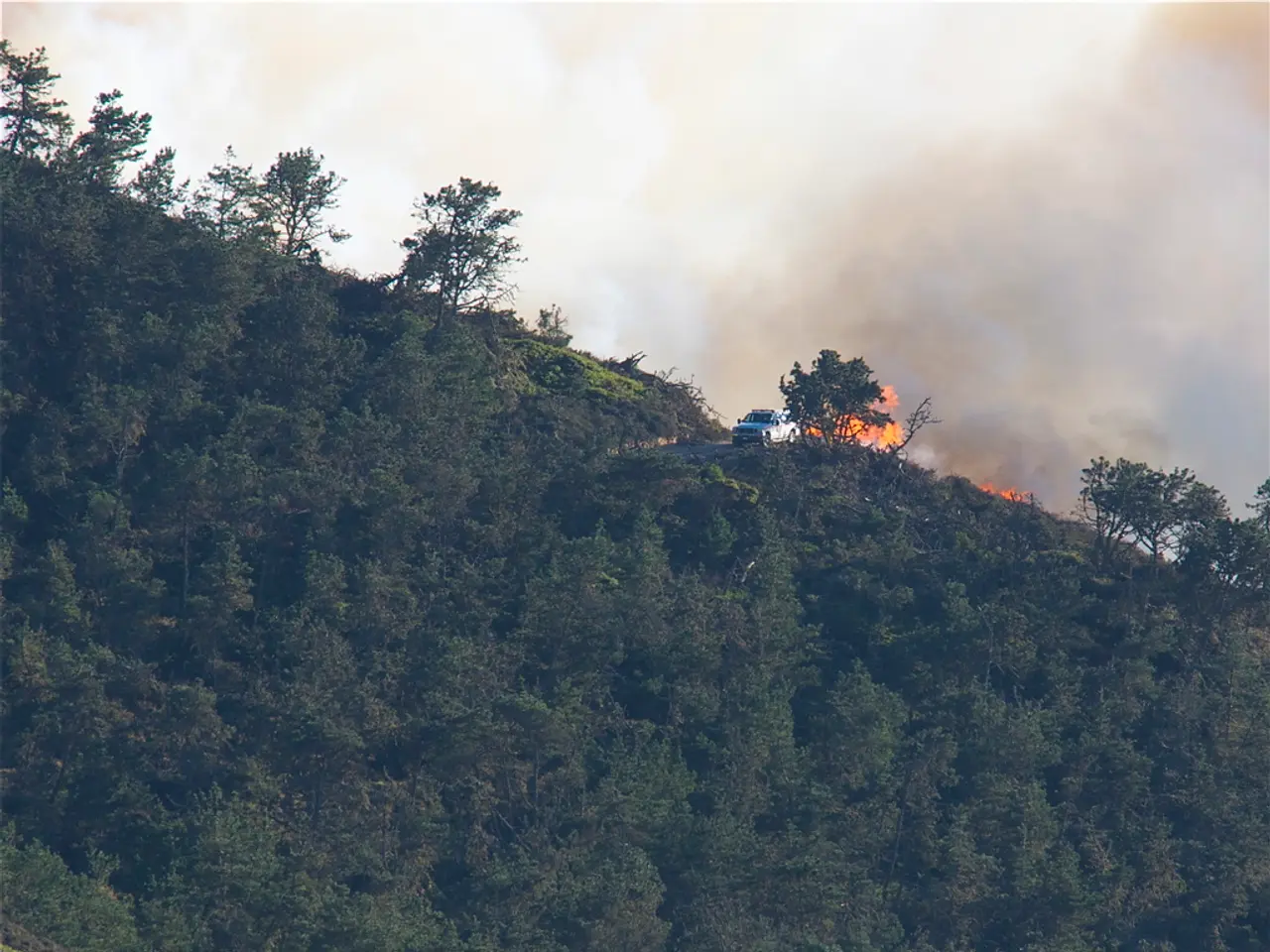Mental health struggles linked to wildfire smoke according to new research
A groundbreaking study from researchers at Harvard T.H. Chan School of Public Health has revealed a potential significant impact of wildfire smoke on mental health, particularly among older adults. Kari Nadeau, one of the study's researchers, emphasises that wildfire smoke isn't just a respiratory issue; it also affects mental health.
The study's findings suggest that exposure to wildfire smoke could lead to an increase in the use of mental health medications, such as those commonly used to treat conditions like depression, anxiety, and PTSD. The research tracked prescriptions for psychotropic medications across the United States between 2006 and 2019, using satellite-based models to measure fine particulate matter (PM2.5) in wildfire smoke.
The study found that in areas with four or more days of intense smoke within a week, medication use rose by about 0.9%. This effect was strongest in areas that experienced longer stretches of heavy smoke. The results showed a clear connection between wildfire smoke and an increase in the use of mental health medications in the days that followed.
The study focused on older adults enrolled in Medicare, and while it did not delve into the reasons behind this increase, it suggested several possibilities. Smoke may directly affect the brain through inflammation or disrupted sleep, or it could trigger stress and anxiety due to its association with danger and displacement.
The study also highlighted the need for increased access to mental health care during wildfire seasons, particularly for vulnerable groups. Researcher YounSoo Jung emphasised the importance of medical and social support to protect these groups, such as older adults on Medicare.
A broader cohort study, the Maui Wildfire Exposure Study, further underlined the worsening mental health outcomes due to wildfire smoke. The study showed that wildfire exposure increases symptom burden, including psychological symptoms, in affected populations.
In summary, wildfire smoke exposure elevates mental health challenges among older adults and leads to increased reliance on mental health medications, including among Medicare beneficiaries. This effect is driven by both physiological interactions with medications and increased psychological stress caused by smoke-related environmental changes. The study's findings underscore the importance of addressing mental health concerns during wildfire seasons and providing adequate support to vulnerable groups.
References:
- Harvard University (2022). Wildfire smoke linked to increased mental health medication use among older adults. ScienceDaily.
- Nadeau, K. G., et al. (2022). Association of wildfire smoke exposure with mental health medication use among older adults in the United States. JAMA Network Open.
- Jung, Y., et al. (2021). Wildfire smoke and mental health: A systematic review. Environmental Health Perspectives.
- Maui Wildfire Exposure Study (2021). Wildfire smoke worsens mental health outcomes: The Maui Wildfire Exposure Study. Environmental Health Perspectives.
- The impact of wildfire smoke on mental health isn't limited to older adults; it could potentially affect individuals seeking therapies and treatments for various mental health conditions, such as depression, anxiety, or PTSD.
- Climate change, by causing more frequent wildfires, might indirectly contribute to increased use of psychotropic medications due to the mental health implications of smoke exposure, thereby affecting environmental-science and health-and-wellness sectors.
- Apart from medications, nutrition plays a crucial role in maintaining mental health, and wildfire smoke might interfere with food sources and supply chains, thus affecting mental health via nutritional imbalances. Furthermore, mental health therapies and treatments might be necessary to address the stress and anxiety caused by smoke-related environmental changes.




